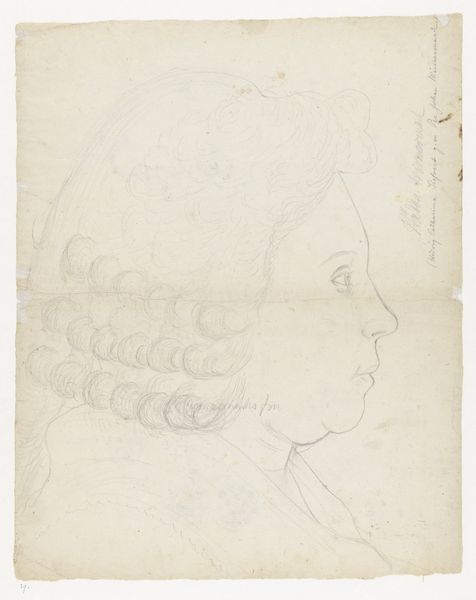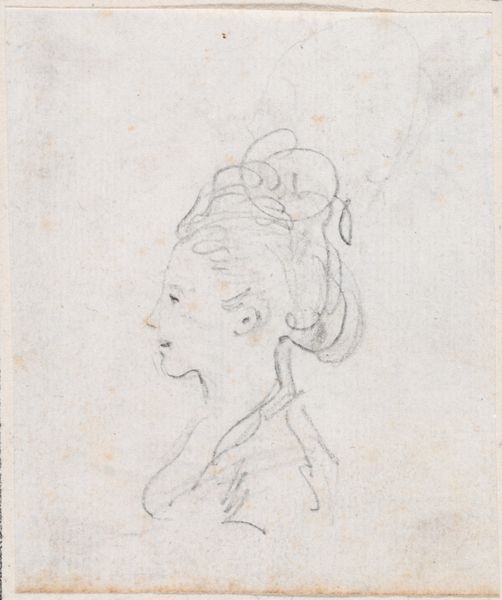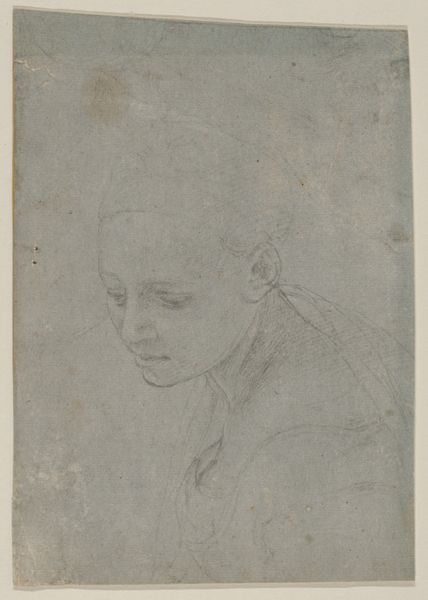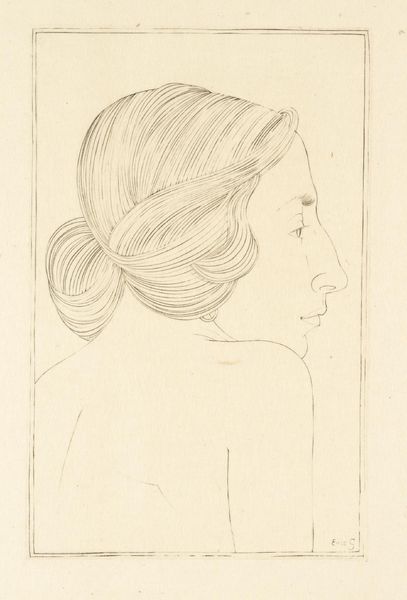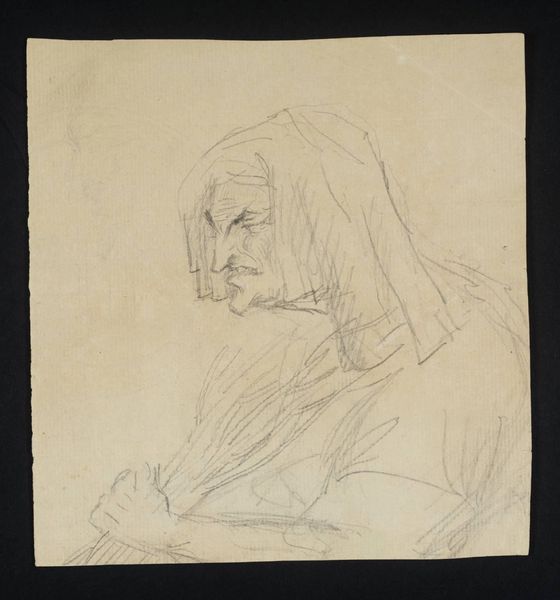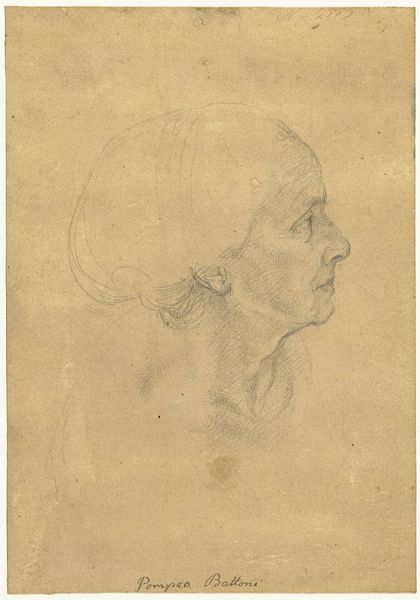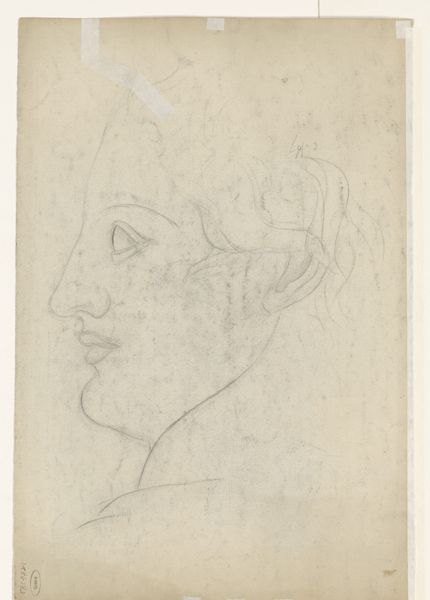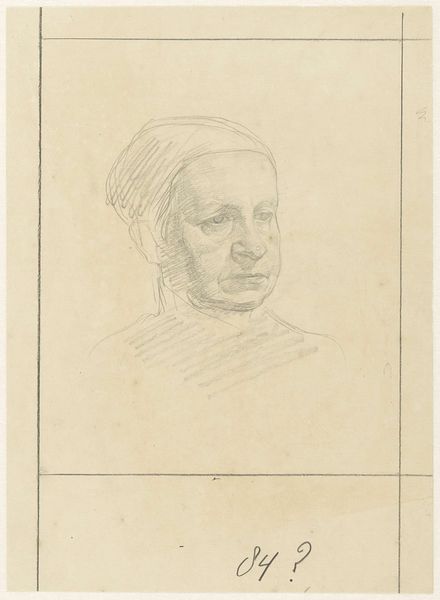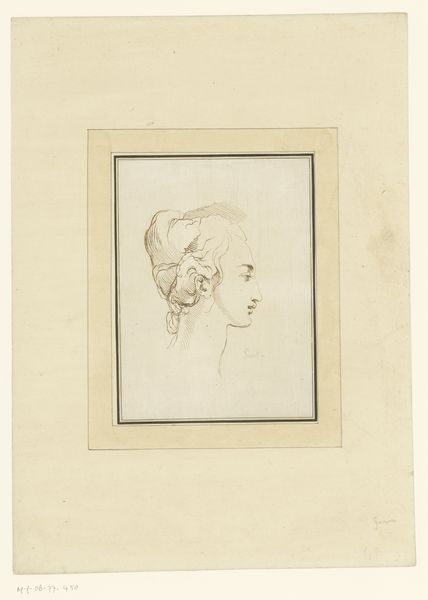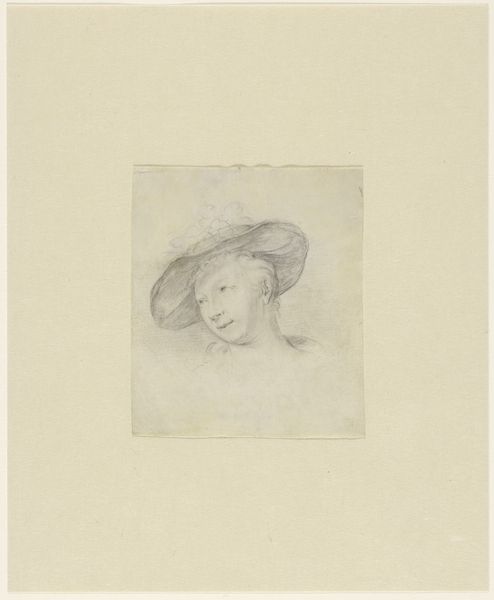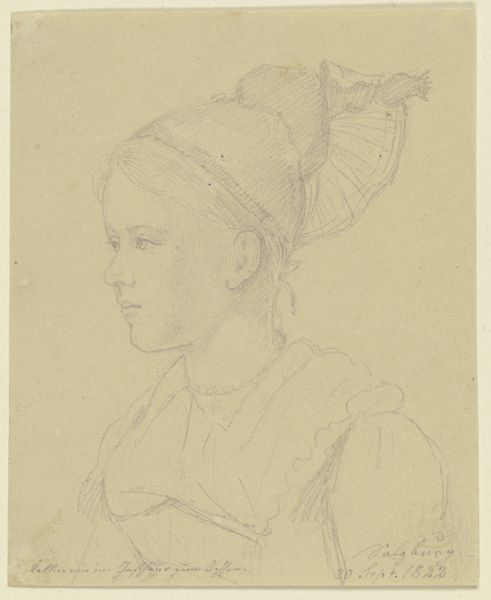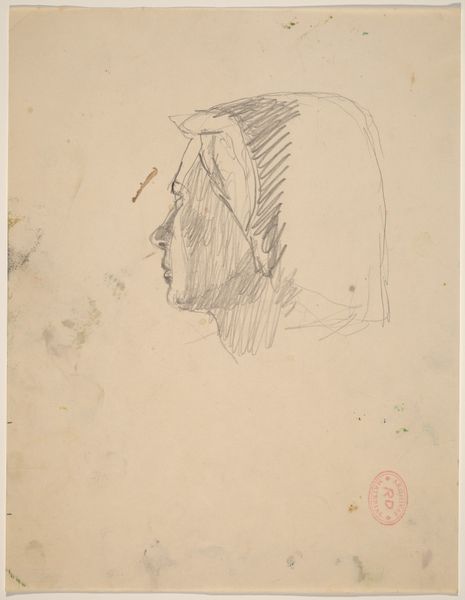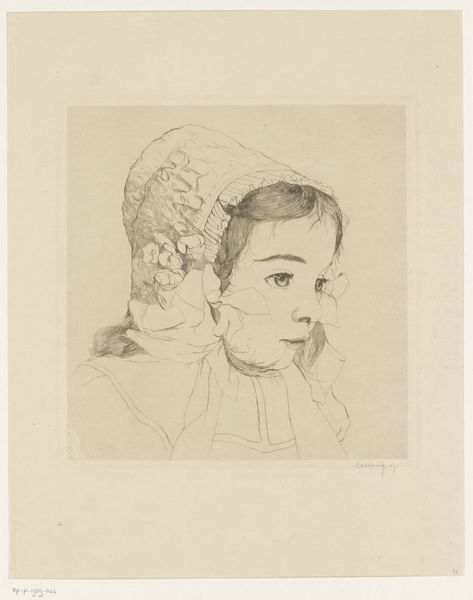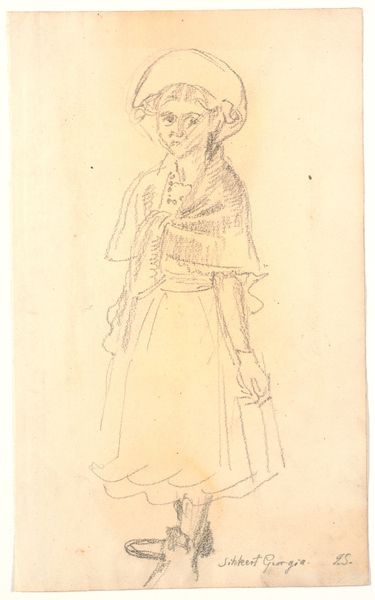
drawing, pencil
#
portrait
#
drawing
#
pencil sketch
#
indigenism
#
pencil
#
realism
Dimensions: height 277 mm, width 189 mm
Copyright: Rijks Museum: Open Domain
Editor: This is "Oude Javaanse vrouw," or "Old Javanese Woman," a pencil drawing from around 1779-1788, by Jan Brandes. It's such a delicate sketch. What do you see in this piece, beyond the woman herself? Curator: This seemingly simple portrait opens up complex questions about representation and power. Brandes was a clergyman, but also a keen observer of the people he encountered in Java. What does it mean for a European man to create an image of an Indigenous woman during a time of increasing colonial power? Editor: So you’re suggesting this isn't just a portrait, but also a record of a specific relationship. Curator: Exactly. Look at the woman’s averted gaze. Is that deference, or is there something else at play? And consider the context of "indigenism" as a style—did it serve to exoticize or to offer genuine empathy? What stories might the woman tell if she could represent herself? The very act of drawing, in this setting, carries political weight. Editor: That adds another layer to it. It's not just about artistic skill, but about the power dynamics inherent in who is doing the portraying and why. How do we, as viewers today, engage with such a loaded image? Curator: We must approach it critically, acknowledging the historical context and being mindful of the power imbalances represented. Can we see past Brandes’ gaze to glimpse the individuality of the woman he depicted, even with the limitations of the colonial context? This artwork offers an invitation for thoughtful inquiry. Editor: Thank you. I'm starting to think differently about what I’m seeing now. It goes far beyond just appreciating the draftsmanship. Curator: Precisely. It’s about questioning the narratives we inherit.
Comments
No comments
Be the first to comment and join the conversation on the ultimate creative platform.
